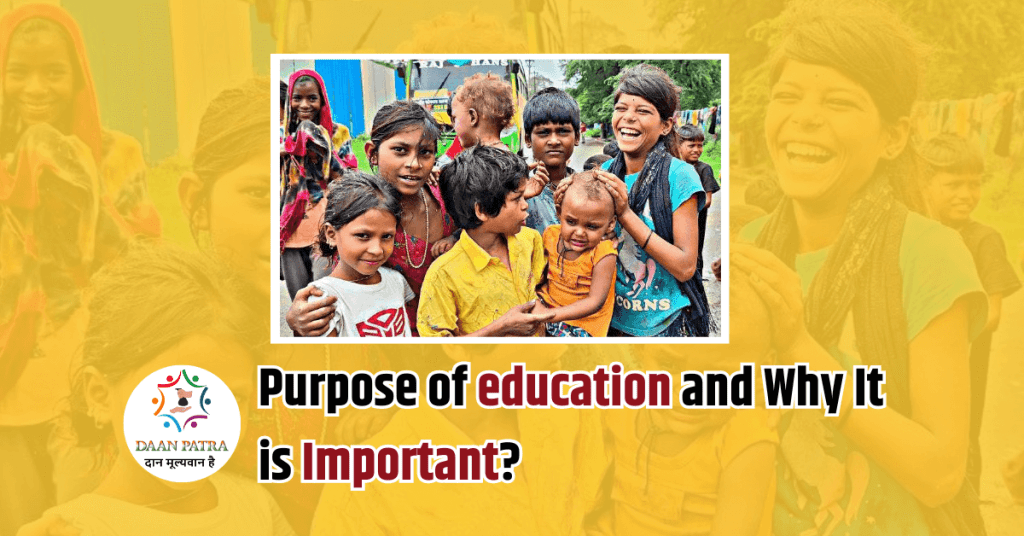What is the Purpose of education?
Education serves as a keystone is to help students acquire subject mastery and knowledge. Education can help individuals acquire knowledge, skills, and abilities that enable them to master the subject they choose to pursue. Knowledge and intellectual development should start with learning the fundamentals and then progressing to relevant or worthwhile topics– learning topics that serve students well.
The focus should also be that the students learn to think critically, solve problems, and understand complex concepts. Moreover, one’s knowledge enables one to engage in productive conversations with their peers.
Unveiling the Educational Mission: Decoding the Fundamental Objectives of Learning
Regarding the purpose of education, these goals play a vital role in ensuring that students acquire a global and well-rounded education, equipping them for success in real-world layout.
The core objective is to stimulate student learning and enclose the provision of knowledge and skills essential for life’s triumphs. This also entails nurturing critical thinking and problem-solving abilities to enable students to navigate challenges or obstacles both within and beyond the confines of the classroom.
Ultimately, another essential objective of the purpose of education is to foster personal and social development. This involves avail students in cultivating character traits such as empathy, respect, and responsibility. It also contributes to their transformation into fruitful citizens who make positive contributions to society.
Decrypting the Roles of Education: A Journey into Its Multifaceted Functions
- Promulgation of Knowledge: The main purpose of education is to smooth the transmission of knowledge, ensuring the progression of wisdom and information across stage of life
- Advancement of Skills: Education serves the purpose of developing essential skills such as critical thinking, problem-solving, communication, and creativity, providing individuals with Useful Means for Accomplish Success.
- Socialization: A fundamental purpose of education is to ease socialization, and initiate individuals to societal standards, values, and cultural practices that contribute to a shared sense of community.
- Character Amplification: Education plays a crucial role in the purposeful development of character, instilling values and ethical principles to mold individuals into responsible members of society.
- Preparation for Employment: An integral purpose of education is to prepare individuals for the workforce by imparting the skills and knowledge necessary for their chosen careers, enhancing their employability.
- Individual Empowerment: Education, with its extensive purpose, empowers individuals by fostering self-confidence, enlarging horizons, and providing the gadgets for personal growth and fulfillment.
- Social Client: Education, as a determined agent, can break conservative barriers, facilitating social mobility by offering individuals the means to overcome restrictions and pursue golden opportunities.
- Cultural Safeguarding and Metamorphosis: Education serves the dual purpose of preserving cultural heritage and fostering innovation, ensuring a stability between tradition and progress.
- Global Associateship: A crucial purpose of education is to cultivate global citizenship, fostering awareness and understanding of Multiculturalism, outlook, and global issues, thereby promoting responsible and informed global participation.
Fostering Responsible Citizenship: The Integrative Role of Education in Socialization
The Role of education extends significantly to include its crucial role in socialization. Education serves as a purposeful mechanism for introducing individuals to societal norms, values, and cultural practices. Its primary function in socialization is to instill a shared understanding of ethical behavior, responsibilities, and community engagement. By implanting the role of education into the socialization process, it aims to shape individuals into responsible members of society, fostering a sense of belonging and contributing to the cohesive fabric of communities. Through this purposeful integration, education becomes a pillar in molding individuals not only intellectually but also socially, aligning them with the collective values and expectations that define a community.
Schooling’s Vital Role: Fulfilling the Purpose of Education
The purpose of schooling is intricately tied to the broader purpose of education. It serves as a pivotal institution in realizing educational objectives by providing a structured academic framework. Schooling is the vehicle through which the purpose of education is actualized, offering students a comprehensive environment for knowledge acquisition and skill development. In addition to academic pursuits, the purpose of schooling actively contributes to the purpose of education by fostering socialization, instilling ethical values, and preparing students for active participation in society. This purposeful integration of education within the school setting underscores its role as a vital catalyst in shaping individuals intellectually, socially, and ethically, aligning with the overarching purpose of education to empower and mold upstanding members of society.
Fulfilling the Pledge: Benefits of Main Purpose Of Education for Individuals and Society
The purpose of education yields a multitude of benefits that extend to individuals and society identical. At its chief, education equips individuals with a diversified range of knowledge and skills, fostering cerebral growth and preparing them for the challenges of a zestful world. This purpose of education goes beyond academic achievement, nourish critical thinking, creativity, and problem-solving capabilities pivotal for personal and professional success.
Moreover, the purpose of education contribute to social harmony and responsible citizenship. By instilling ethical values and interpersonal skills, education fosters a sense of community and cooperation. As individuals embody the principles instilled through the purpose of education, they become agents of positive change, enriching the societal fabric with their contributions. In this way, the purpose of education becomes a catalyst for not only individual advancement but also the collective progress and prosperity of society.
Closing Remarks
The purpose of education is a dynamic force that shapes individuals and societies alike. It is a journey of discovery, empowerment, and enlightenment, contributing to the holistic development of individuals and fostering a collective sense of progress. By understanding the primary purpose, functions, and benefits of education, we unveil its transformative impact on the fabric of our lives.
FAQs
Ques. What is the Primary Purpose of Education in Terms of Socialization?
Answer. The primary purpose of education in terms of socialization is to acquaint selves with the norms, values, and customs of society. Through formal and informal learning experiences, education plays a pivotal role in shaping individuals into responsible and socially adept members of their hamlets.
Ques. What is the Purpose of Inclusive Education?
Answer. Inclusive education aims successful inclusion attempts to develop an individual’s strengths and gifts. Purpose of education allows students of all backgrounds to learn and grow side by side, to the benefit of all.
Ques. What Are the Benefits of the Purpose of Education?
Answer. The perks of education are far-reaching. They include personal development, enhanced cognitive abilities, economic opportunities, and the cultivation of a well-informed and active citizenry. Education is the key to unlocking individual potential and driving societal progress.
Related Posts:


I have a great command of sophisticated language and literature because I am an artist at heart as well as a writer by profession. I am able to constantly produce work of a high quality because of my knowledge. I’m well-known for my versatility and am an excellent writer of both creative and technical content. To write content that is both entertaining and customized, I take the approach of getting to know the interests and preferences of my targeted audience.

